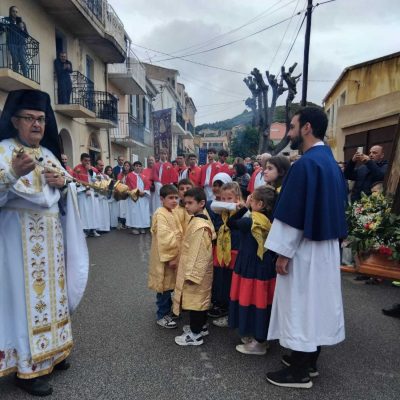Ms. Angeliki Oikonomou, who has been living and working in Cargese, Corsica—known as the Greek village of Corsica—since the time of the financial crisis in Greece, spoke on the radio program “Our Global Voice” on Voice of Greece, hosted by Dimitris Kontogiannis. She shared the history of the village’s inhabitants, their traditions, and their enduring Greek identity.
Ms. Oikonomou, who is married to a descendant of one of the original Maniot families, named Tzanetatsi (from Tzanetakis), and has a son, recounted the story of approximately 700 Maniots who left Oitylo in the 17th century. They first traveled to Genoa and later settled on the island of Corsica, which was then under Genoese rule. When the Corsican revolution broke out, the Maniots remained loyal to the Genoese and paid the price for it. Eventually, Corsica passed to French control, and the first French governor, General Marbeuf, treated the Maniot descendants well and allowed them to build their own village in the place now known as Cargese.
Ms. Oikonomou noted that the Maniots were obliged to recognize the authority of the Pope in order to receive Genoese support, but they preserved the Orthodox liturgical tradition. This is evident in the Catholic church of Saint Spyridon and during services, such as the recent Easter celebrations. In general, the church remains at the heart of both religious and cultural life in the village. The residents are aware of their origins, visit Oitylo, Corfu, and other places in Greece, and wish to maintain ties with Mani and Greece more broadly, as she emphasized.
